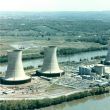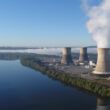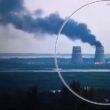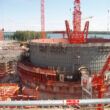Tough governmental decisions must be made if nuclear is to expand
By Bulletin Staff, October 8, 2008
As much as I appreciate Alan Hanson’s support for my argument, I don’t share his underlying assumption–or Stephen Goldberg’s–that nuclear power is certain to undergo a rapid global expansion. Obviously, nuclear industry proponents would like this to be the case, but there are many impediments to nuclear energy’s growth. As Charles Ferguson and Michelle Smith demonstrate in the Bulletin‘s recent special issue on nuclear energy, potential hurdles range from high financing costs during a time of tight global credit to insufficient labor and supplier markets. Indeed, as Mycle Schneider points out in a recent Bulletin Web-Edition report, given the forthcoming retirement of early generations of reactors constructed in the pre-Chernobyl days, we may actually see a decline in the number of active nuclear reactors.
Plus, energy companies, particularly in the nuclear arena, aren’t purely free-market actors making decisions according to Adam Smith’s framework. Rather, these companies are tightly interwoven with the political leadership of their countries, and their choices are based on politics as much as economics. Just ask Gazprom’s former chairman, and current Russian president, Dmitry Medvedev or Sergei Kiriyenko, Russia’s former prime minister and Rosatom’s current head.
If nuclear energy prospers in the future, it will be because governments decide to provide their nuclear industries with direct or indirect government subsidies, loans, trade supports, and liability limits. So countries first need to decide whether building nuclear power plants (especially those needed to replace the plants being taken out of service) is a cost-effective way of tackling climate change or energy security concerns relative to other options such as increased efficiency or greater use of alternative energy.
Jill Parillo is correct when she writes that nuclear energy will find it hard to clear this bar unless governments first seriously address how to handle nuclear waste and spent fuel. After all, that’s exactly what I was arguing when I said that before searching for technological solutions, “countries need to engage each other and their people in a transparent discussion on how to deal with spent nuclear fuel.” And she’s right that “until the United States develops a solution for its own nuclear waste problem . . . it’s not responsible to facilitate a global nuclear renaissance.”
But she’s too quick to throw up her hands and imply that the United States needs to wait for decades to find a technological fix to a political problem. Saying that a solution can’t be found because Nevada doesn’t want a repository is a cop-out. It may be true that Yucca Mountain will never open as long as one of the state’s senators, Harry Reid, is Senate majority leader. But that’s a fact of political life, hardly a law of nature. And Yucca Mountain’s current capacity limit also is largely a function of politics.
Indeed, the two leading presidential candidates have at least pointed in the direction of a possible solution. Republican presidential nominee John McCain first tried to duck the issue by calling for some other country to host an international spent fuel repository, and at times implying that reprocessing would tackle the problem. But on the whole, since then, he’s been fairly straightforward in saying that Yucca Mountain should open despite the political costs in Nevada, a critical swing state. Democratic presidential nominee Barack Obama has been unwilling to go against Reid. But he has called for interim storage of spent fuel, a solution that would provide breathing space to reach a political agreement and explore technological options.
Americans should challenge their candidates to explain how they would tackle this issue at home as president before creating new problems abroad.
Topics: Nuclear Energy
Share: [addthis tool="addthis_inline_share_toolbox"]













